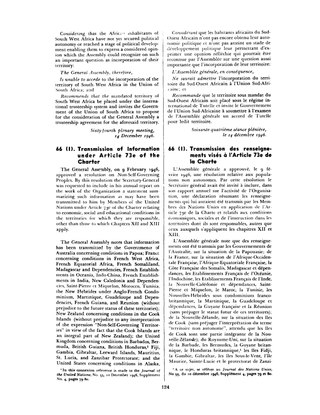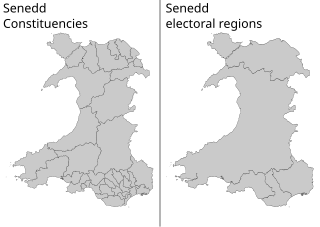The 2011 United Kingdom elections may refer to one of six elections in the United Kingdom that took place on 5 May 2011:
The 2011 United Kingdom elections may refer to one of six elections in the United Kingdom that took place on 5 May 2011:
Diet may refer to:

The politics of the United Kingdom functions within a constitutional monarchy where executive power is delegated by legislation and social conventions to a unitary parliamentary democracy. From this a hereditary monarch, currently Charles III, serves as head of state while the Prime Minister of the United Kingdom, currently Rishi Sunak, serves as the elected head of government.

The member states of the United Nations comprise 193 sovereign states. The United Nations (UN) is the world's largest intergovernmental organization. All members have equal representation in the UN General Assembly.
The boundary commissions in the United Kingdom are non-departmental public bodies responsible for determining the boundaries of constituencies for elections to the House of Commons. There are four boundary commissions:

The secret ballot, also known as the Australian ballot, is a voting method in which a voter's identity in an election or a referendum is anonymous. This forestalls attempts to influence the voter by intimidation, blackmailing, and potential vote buying. This system is one means of achieving the goal of political privacy.
A general assembly or general meeting is a meeting of all the members of an organization or shareholders of a company.
Various elections were held in the United Kingdom in 2003, including:
Elections in Northern Ireland are held on a regular basis to local councils, the Northern Ireland Assembly and to the Parliament of the United Kingdom.

In the United Kingdom (UK), each of the electoral areas or divisions called constituencies elects one member to the House of Commons.

Chapter XI of the United Nations Charter defines a non-self-governing territory (NSGT) as a territory "whose people have not yet attained a full measure of self-government". In practice, an NSGT is a territory deemed by the United Nations General Assembly (UNGA) to be "non-self-governing". Chapter XI of the UN Charter also includes a "Declaration on Non-Self-Governing Territories" that the interests of the occupants of dependent territories are paramount and requires member states of the United Nations in control of such territories to submit annual information reports concerning the development of those territories. Since 1946, the UNGA has maintained a list of non-self governing territories under member states' control. Since its inception, dozens of territories have been removed from the list, typically when they attained independence or internal self-government, while other territories have been added as new administering countries joined the United Nations or the General Assembly reassessed the status of certain territories.

In the United Kingdom, a member of parliament (MP) is an individual elected to serve in the House of Commons, the lower house of the Parliament of the United Kingdom.

The Senedd constituencies and electoral regions are the electoral districts used to elect members of the Senedd to the Senedd, and have been used in some form since the first election of the then National Assembly for Wales in 1999. New boundaries were introduced for the 2007 elections and currently consist of forty constituencies and five regions. The five electoral regions are: Mid and West Wales, North Wales, South Wales Central, South Wales East, and South Wales West, with the forty constituencies listed below. Voting last took place in all districts in the 2021 Senedd election, and is not used for local government.

The State of Bahrain was the name of Bahrain from 1971 to 2002. On 15 August 1971, Bahrain declared independence and signed a new treaty of friendship with the United Kingdom. Bahrain joined the United Nations and the Arab League later in the year. The oil boom of the 1970s benefited Bahrain greatly, although the subsequent downturn hurt the economy. The country had already begun diversification of its economy and benefited further from Lebanese Civil War in the 1970s and 1980s, when Bahrain replaced Beirut as the Middle East's financial hub after Lebanon's large banking sector was driven out of the country by the war.

The Parliament of Bhutan consists of the King of Bhutan together with a bicameral parliament. This bicameral parliament is made up of an upper house, the National Council and a lower house, the National Assembly. The current parliamentary framework replaced the unicameral Tshogdu in 2007, with the first members taking seats in 2008.

There are five types of elections in the United Kingdom: elections to the House of Commons of the United Kingdom, elections to devolved parliaments and assemblies, local elections, mayoral elections, and police and crime commissioner elections. Within each of those categories, there may also be by-elections. Elections are held on Election Day, which is conventionally a Thursday, and under the provisions of the Dissolution and Calling of Parliament Act 2022 the timing of general elections can be held at the discretion of the prime minister during any five-year period. All other types of elections are held after fixed periods, though early elections to the devolved assemblies and parliaments can occur in certain situations. The five electoral systems used are: the single member plurality system (first-past-the-post), the multi-member plurality, the single transferable vote, the additional member system, and the supplementary vote.

In the United Kingdom, devolution is the Parliament of the United Kingdom's statutory granting of a greater level of self-government to the Scottish Parliament, the Senedd, the Northern Ireland Assembly and the London Assembly and to their associated executive bodies the Scottish Government, the Welsh Government, the Northern Ireland Executive and in England, the Greater London Authority and combined authorities.
United Kingdom elections, 2016 refers to several elections that took place in the United Kingdom on Thursday 5 May 2016, at subnational and local level. Elections on that day are:
Several elections were held in the United Kingdom in 2017:
The 2017 International Court of Justice election took place from 9 to 20 November 2017 at the United Nations Headquarters in New York City. In the set of triennial elections, the General Assembly and the Security Council concurrently elect five judges to the Court for nine-year terms, in this case beginning on 6 February 2018. From the seven candidates, the five winners were Abdulqawi Yusuf (Somalia), Antônio Augusto Cançado Trindade (Brazil), Nawaf Salam (Lebanon), Ronny Abraham (France) and Dalveer Bhandari (India).
The 2021 United Kingdom elections were several elections that took place in the United Kingdom on 6 May 2021 at the subnational and local levels. They have been colloquially referred to as Super Thursday. The elections that took place on this day are: